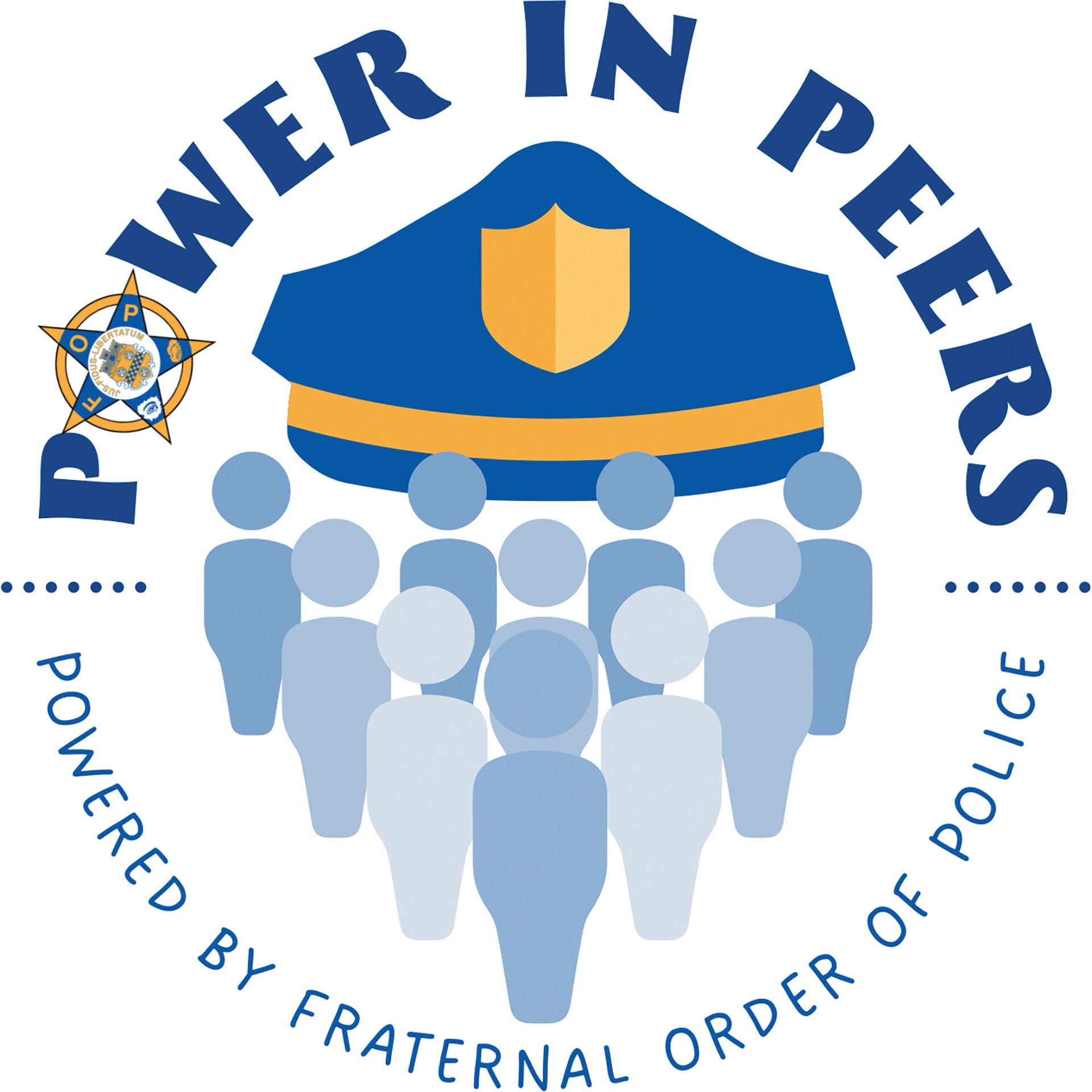I n 2018, a nationwide survey of members of law enforcement indicated that peer support was seen as the most effective among wellness services available to law enforcement. Based on this information, the National Fraternal Order of Police, an organization with members in all 50 states, aimed to create regional teams of law enforcement peer supporters who could respond and deploy with the organization’s Disaster Area Response Team (DART). When mass catastrophe incidents occur in our country, the FOP DART is equipped to respond and to provide support to law enforcement and other first responders working in the affected communities. DART serves meals, repairs first responder homes and provides other support so that first responders can continue working to stabilize their communities. The FOP recognized the value in adding teams of trained peer support officers to this effort.
n 2018, a nationwide survey of members of law enforcement indicated that peer support was seen as the most effective among wellness services available to law enforcement. Based on this information, the National Fraternal Order of Police, an organization with members in all 50 states, aimed to create regional teams of law enforcement peer supporters who could respond and deploy with the organization’s Disaster Area Response Team (DART). When mass catastrophe incidents occur in our country, the FOP DART is equipped to respond and to provide support to law enforcement and other first responders working in the affected communities. DART serves meals, repairs first responder homes and provides other support so that first responders can continue working to stabilize their communities. The FOP recognized the value in adding teams of trained peer support officers to this effort.
Developing a strong network of trained peer supporters depends on consistent and effective training for those providing support. Across the profession, there are varying types and models of training for peer support. However, there has historically been a lack of consistency or standardization among training models. Now, the National Fraternal Order of Police, in cooperation with the COPS Office arm of the U.S. Department of Justice, has developed a nationally standardized curriculum in law enforcement peer support. Power in Peers is a 40-hour course in peer support designed specifically for law enforcement by law enforcement.
Developing a strong network of trained peer supporters depends on consistent and effective training for those providing support.
The Power in Peers curriculum was developed by a team of subject-matter experts who considered existing peer support training models, the current climate of law enforcement and the needs of officers in agencies of all sizes. The result is a new curriculum in law enforcement peer support that is standardized yet customizable to any size law enforcement agency. “Power in Peers isn’t meant to replace what peer teams are already doing,” Power in Peers master trainer Meghann Holloway says. “It was designed to provide consistency and standardization across the nation, so that we are all speaking the same language and meeting a common level of training.” For those teams already trained in other models, this model simply provides an additional tool set and a certification in this standardized model — a certification that can be earned by members of the law enforcement family from coast to coast.
Based in positive psychology, the Power in Peers curriculum teaches supporting peer mentors to access the supported officer’s personal strengths to provide effective support. The course also addresses other topics not commonly found in other peer support training programs. It encourages proactive support of officers in difficult situations, including those that an officer may endure in everyday life, not necessarily following a critical incident. Confidentiality and
privilege mandates are explored, and self-care planning for the supporting peer mentor is included. The course incorporates numerous opportunities for practice of skills and provides an opportunity for the development of connections to other officers engaged in peer support work. In December 2023 and January 2024, the first pilots of the Power in Peers course were launched in Illinois and Colorado, and the course will soon be widely available to agencies and officers across the nation. Open not only to active officers, Power in Peers training is designed to be accessed by retired officers, civilian support staff and mental health
providers as well.
The creation of a national standard in law enforcement peer support will establish a platform for provision of wider levels of service to members of the profession. The results of the 2023 FOP Biennial Critical Issues in Policing Survey indicate that the stigma surrounding mental health services for law enforcement has decreased in the last two years. However, stigma still remains in our profession, and there is a persistent fear that asking for help will be seen as weakness. Even in agencies with existing peer support programs, officers may fear that accessing peer support services may mean risking their confidentiality and exposing themselves to scrutiny and judgment from their agencies and their peers. But what if peer support were available outside of the officer’s agency or even outside their state? With the Power in Peers supporting peer mentor certification comes entry into a network of trained mentors who will be equipped to provide support across the profession, in their agency or on the other side of the country. This course will provide an opportunity for officers to access trained peer support in places that are geographically far from them, so that fears of compromised confidentiality are decreased, removing a barrier that may currently keep officers from accessing peer support in their own agencies.
For more information on Power in Peers, please visit fop.net/officer-wellness/power-in-peers.
Sherri Martin, MA, LPCA, is the director of Wellness Services for the National Fraternal Order of Police.
As seen in the March 2024 issue of American Police Beat magazine.
Don’t miss out on another issue today! Click below:





